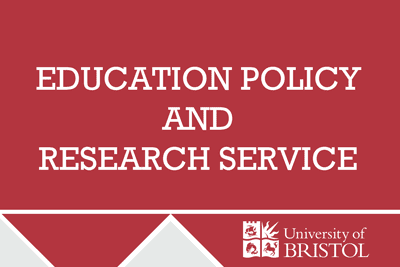
Catherine Hitchcock, Deputy Head (Pastoral) and DSL, UK The setting is a 4-11 co-educational independent Prep School in South West London and this case study outlines the school’s approach to supporting pupil mental health around bereavement and loss. School priority The school has prioritised the support of bereavement and loss as an area to develop […]

Original article by: Heath MA and Cole BV (2012) Strengthening classroom emotional support for children following a family member’s death. School Psychology International 33(3): 243-262. DOI: 10.1177/0143034311415800 Introduction Schools have been recognised by national and international organisations as having an unparalleled potential to provide supportive services for children’s mental health needs. The focus of […]

This article summarises the following original research paper: Onrust S, Otten R, Lammers J et al. (2016) School-based programmes to reduce and prevent substance use in different age groups: What works for whom? Systematic review and meta-regression analysis. Clinical Psychology Review 44: 45–59. Introduction Substance use at a young age is associated with an increased […]




Beng Huat See, Professor in the School of Education, Durham University, UK Ensuring an adequate supply of appropriate, suitably qualified teachers is a major policy concern facing many education systems around the world. It is generally agreed that the quality of teachers is an important element in the learning outcomes of their students (Darling-Hammond, 2000; Hanushek […]

Thomas Perry and Rebecca Morris, University of Warwick, UK Implementation: Easier said than done Underlying a lot of current thinking about evidence-based practice is the idea of teachers selecting and implementing the programmes and strategies that researchers deem to be effective. In this division of labour, researchers find out ‘what works’ and teachers are tasked […]

Gary Aubin, Director of SEND, Future Academies, UK Sarah Green, Director of Literacy, The Prospere Learning Trust, UK Fliss James, Early Years Teacher and Deputy Director of East London Research School, UK Julie Kettlewell, Assistant Headteacher and Assistant Director of Huntingdon Research School, UK Kirstin Mulholland, Assistant Professor in Education, Northumbria University, UK Bob Pritchard, […]

Dylan Wiliam, UCL Institute of Education, UK Introduction There is increasing consensus, among both researchers and policymakers, that teacher quality is both variable and consequential; some teachers are more effective than others, and the differences are both large and significant for the students they teach. Predictably, this has led to a variety of proposals for […]

Meg Maguire and Emma Towers, King’s College London, School of Education, Communication and Society, UK Different perspectives on ‘teacher effectiveness’ Good teaching matters, and decades of research has shown that teachers can make a difference in student learning (Stronge, 2018) and that teachers are one of the most important in-school factors in students’ academic success […]

Nick Pointer and Steve Farndon, Ambition Institute, UK Teacher educators face a common problem. During professional development sessions, teachers engage with new ideas or strategies, finding them stimulating and relevant. Yet these same teachers subsequently fail to change the way they act or make decisions in their classrooms; a phenomenon dubbed the ‘knowing–doing gap’ (Knight […]

Dr. Rina P.Y. Lai, University of Cambridge, United Kingdom Sarah Tong, Big Bang Academy, Hong Kong Introduction After the disruptive wave of the pandemic, educators are standing at the critical junction of the future of educational technology (EdTech). In particular, witnessing the ubiquity of digital technologies giving rise to new ways of teaching and learning, […]

Chris Larvin, Research Specialist, Teach First, UK Jenny Griffiths, Knowledge & Research Manager, Teach First, UK Luke Bocock, Head of Research & Learning, Teach First, UK Recent research suggests that the impact of high-quality teacher development on pupil outcomes can be equivalent to a pupil taught by a teacher with 10 years of experience compared […]

William Gray, Deputy Headteacher, Westerhope Primary School, UK Kirstin Mulholland, Assistant Professor, Northumbria University, UK; Local Leader of Mathematics Education, Great North Maths Hub, UK The research is clear that teachers’ professional development (PD) can positively impact pupil outcomes (Cordingley et al., 2015; Rauch and Coe, 2019; Sancar et al., 2021), with some sources suggesting […]

Alex Tomkins, Headteacher, Spring Common Academy, UK; EdD student, University of Derby, UK What makes a special school different? Special schools educate students with a variety of needs; most have diverse cohorts and often teach the most marginalised in our school system. The school in which this case study is set is a large special […]

Jo Lomax, Programme Lead, and Luke Watkins (CTeach), Learning Specialist, Church of England Foundation for Educational Leadership, UK Context Reforms to the induction of our newest teachers, through the Early Career Framework (DfE, 2019), and the reformed NPQs (DfE, 2020) for those who aspire to develop expertise in specialist areas and leadership are underpinned by […]

Caitlin Parker, Special Educational Needs Coordinator, The Academy of Contemporary Music, UK Lewis A Baker, Faculty of Engineering and Physical Sciences, University of Surrey, UK To meet the diversity of learning needs within the classroom, teachers face the challenge of keeping abreast of developments in educational research in order to implement sound curriculum design and […]

Matthew Tragheim, Head of Maths, Wayfield Primary School, UK Tamara Hunter, Deputy Head, Barnhurst Primary School, UK In 2020, education leaders across the UK were rapidly responding to the ever-changing permutations of COVID-19. Distributed leadership, blended learning models and creative curriculums flourished. However, early career teachers and subject leaders faced many challenges: effective reporting, digital […]

Jim Mepham, Headteacher, Shield Road Primary, UK The aim of this reflective piece is to suggest that, as a profession, we need to consider a broader, more holistic version of primary education than we currently have, one that has moral purpose as its central focus. The [Ofsted inspectorate] framework itself is driven by an ideology […]


















